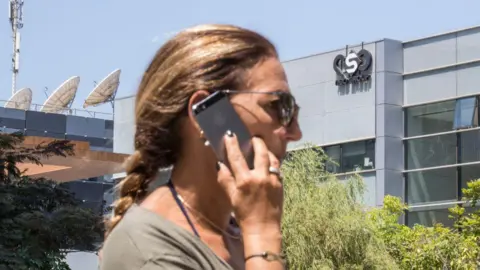The news surrounding the infamous NSO Group and its Pegasus spyware takes a significant turn as a court orders the company to pay a substantial sum of $167 million to WhatsApp. This ruling stems from an incident in 2019 when the surveillance software was reportedly used to breach the security of 1,400 individuals. Pegasus, a sophisticated form of malware, is notorious for its capability to stealthily access smartphones, allowing unauthorized users to surveil conversations, capture images, and even listen in on communications through microphones.
NSO Group, the Israeli technology company responsible for Pegasus, has come under heavy scrutiny for the misuse of its products, which have been linked to enabling authoritarian governments to surveil critics, journalists, and political figures worldwide. The ruling was heralded by WhatsApp’s parent company, Meta, proclaiming it to be a “first victory against the development and use of illegal spyware.” This case marks a significant legal milestone, illustrating the judiciary’s acknowledgment of accountability within the tech industry for the misuse of surveillance technologies.
In response to the ruling, NSO Group indicated plans to meticulously review the court’s decision, suggesting the possibility of appealing the ruling or seeking other legal remedies. This development raises pertinent questions about the legal and ethical boundaries of technology used for surveillance, particularly concerning the balance between national security interests and individual privacy rights.
Historically, the Pegasus spyware became embroiled in global scandal during 2021 when a substantial leak exposed a list of 50,000 phone numbers of potential targets, igniting outrage and leading to widespread media coverage. Among those identified were not only politicians and business leaders but also human rights activists and members of influential families, such as several from Arab royal lineages. The implications of such invasions of privacy have been profound, prompting discussions about cybersecurity and the need for robust legal frameworks governing the use of surveillance technology.
Notably, investigations by organizations like The Citizen Lab have revealed alarming instances where the NSO Group’s spyware reportedly infiltrated devices associated with high-profile government officials in the United Kingdom, including those connected to Downing Street. The potential breach of privacy extended to public figures around the globe, including French President Emmanuel Macron and family members of Jamal Khashoggi, the murdered journalist—a victim of state-sponsored brutality linked to the Saudi regime.
In addition to the $167 million awarded to WhatsApp, NSO Group is also required to pay $444,000 in damages, concluding a contentious six-year legal battle with the social media giant. Meta characterized the jury’s verdict as a critical deterrent against the malicious practices of companies engaged in illegal cyber surveillance, emphasizing the need for accountability in a sector that is increasingly vital for global security and public safety.
NSO Group, however, defended its operations, stating that its technology is intended solely for combating serious crime and terrorism, arguing its products are used responsibly by authorized entities. This dichotomy of perspectives underscores the complex dialogue surrounding surveillance technology, its potential for harm, and the responsibility of companies like NSO Group to mitigate misuse.
As WhatsApp celebrates this legal victory, the outcome opens the door for potential litigation against NSO Group from other tech companies as they seek redress for breaches stemming from Pegasus surveillance. The ruling underscores a pivotal moment in the ongoing discourse about digital privacy rights and the regulation of surveillance technologies, marking it as a case to watch in the evolving landscape of international business and cybersecurity.



